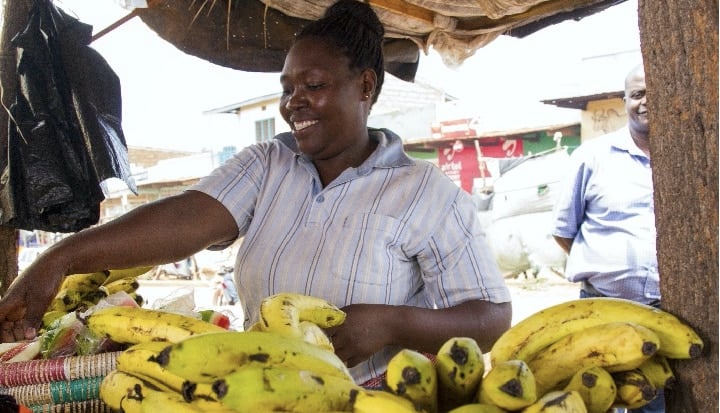Gender lens investing includes three key entry points for investors: (1) providing capital to women-led/founded companies and/or gender-forward businesses; (2) applying a gender lens to the investment cycle, such as during pipeline development; and (3) funding and supporting the design and implementation of gender-inclusive technical assistance (TA) activities. Investors often focus on the first two of these entry points, largely ignoring gender while providing TA and other types of post-investment support.
From June 2019-2022, AlphaMundi Foundation, Acumen, AHL Venture Partners, Root Capital, SEAF and Shell Foundation launched the Gender-Smart Enterprise Assistance Research Coalition (G-SEARCh) consortium to conduct new research in the gender lens investing community. These impact investors and one of their key implementation partners, Value for Women, saw that investors were missing an opportunity for higher returns by overlooking gender in their post-investment support activities with their portfolio companies, while companies were missing a similar opportunity by deprioritizing gender in their value chains. With more than $700 million in combined assets under management, the G-SEARCh investors were keen to build a greater understanding of the business case for gender-smart TA in small and medium enterprises (SMEs).
To that end, the G-SEARCh consortium brought in the William Davidson Institute at the University of Michigan (WDI) as an independent, third-party academic research partner. For more than 30 years, the Institute has worked to unlock the power of business to provide lasting economic and social prosperity in low- and middle-income countries. A key component of this mission is WDI’s Performance Measurement and Improvement team, which designs strategies to measure impact and strengthen programs in real-time. In this project, G-SEARCh and WDI’s shared goals were to understand the financial benefits and other business outcomes of the TA engagements, the social outcomes of these activities on the SMEs’ target stakeholders (i.e., their employees, customers, distributors and producers), and any factors that affected the TA rollout.
The research included 21 SMEs that implemented seven types of gender-smart TA strategies (see Figure 1) during the height of the COVID-19 pandemic. The G-SEARCh investors funded or subsidized these TA activities with each SME for a specific time (on average, nine months) – a period the consortium referred to as the pilot. Using participatory research methods, WDI developed a research framework and analysis plan and designed studies – keeping in mind the distress caused by the pandemic and our stakeholders’ changing priorities and resources. Due to time constraints, the qualitative and quantitative data collection with most SMEs was completed three months after pilot completion.
Understanding the Business and Social Outcomes of Gender-Smart Technical Assistance
Through interviews with company representatives, the research found that gender-smart TA can provide several business outcomes for companies. For among the SMEs in the pilot, these outcomes included:
- Improved brand loyalty (as reported by 86% of our sample SMEs), due to stakeholders having the opportunity to share their preferences and challenges with the SME.
- Improved workplace culture, with 76% of SMEs reporting improvement in gender perceptions and attitudes towards women, 57% reporting a formal commitment to gender equality from leadership, 38% reporting increased sales or number of customers, and 38% reporting more interest or funding from new or existing investors.
Through these interviews and additional surveys with stakeholders of five companies (discussed later), the research found that social outcomes for the TA’s target stakeholders included:
- Increased pride or loyalty to the company (as reported by 71% of our sample SMEs).
- Improved skills and knowledge (reported by 67%), greater self-confidence (reported by 67%) and improved mental health (reported by 48%).
- Higher income or job engagement (reported by 57%).
Each TA engagement studied in the sample was highly customized and designed for specific business goals and hence cannot be compared. Also, not all TA activities generated all the types of business and social outcomes observed in the study. Furthermore, 43% and 30% of SMEs shared that it was too early to determine all of their business and social outcomes, respectively. However, 86% of the SMEs in the sample continued TA activities even after the pilot closed. It is critical to note that many SMEs also shared that they had little or no resources to measure how the TA had impacted their stakeholders.
WDI also investigated the monetary, human and technical costs that SMEs incurred while engaging in TA activities. SMEs confirmed that most costs fell between US $10,000 to $50,000 per engagement.
In conclusion, the findings from this project are encouraging, but more resources are needed to discern the longer-term outcomes of gender-smart TA. The consortium hopes these insights can generate new dialogue among investors and funders around the need to collaborate with their portfolio companies to fund, test and measure TA.
All G-SEARCh knowledge products can be found here. For questions, please contact Yaquta Fatehi at wd************************@um***.edu.
We thank our funders: International Development Research Centre and United States Agency for International Development.
This article was first published on NextBillion and has been revised from its original form.










